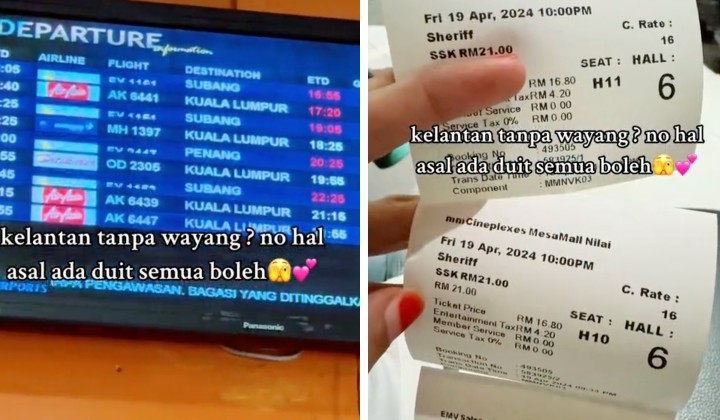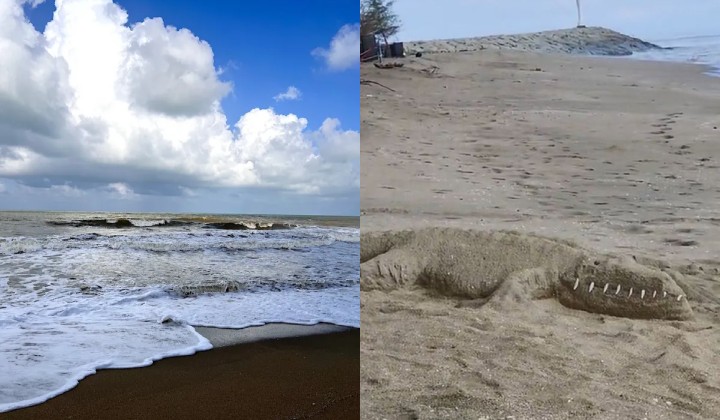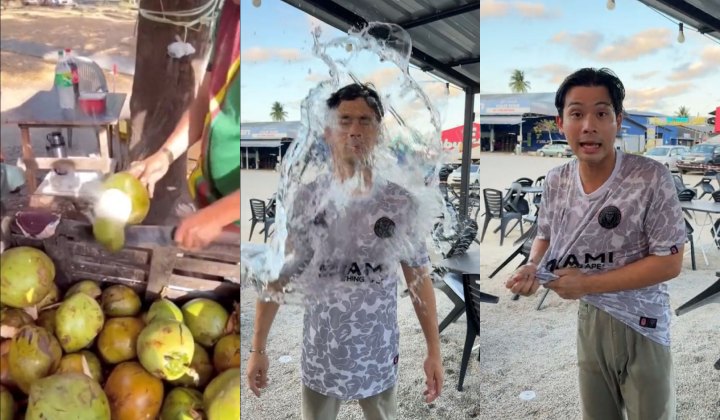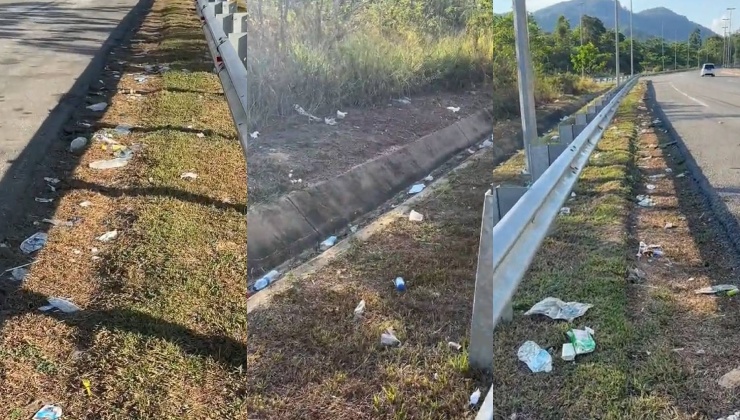How Did They Get So Rich? Woman On Facebook Reveals Cosmetic Founders’ Alleged Dirty Secrets
These cosmetic products are often called ‘Produk Timbang Kilo’ which means that the cheap creams come in bulk weighing several kilogrammes and are repacked into smaller packaging.
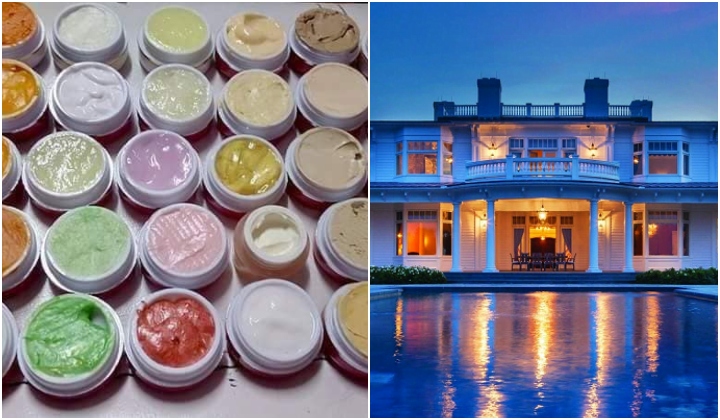
Subscribe to our Telegram channel for the latest stories and updates.
Have you ever seen those pictures of business founders flexing their wealthy houses, luxurious bags, branded accessories and colourful sports cars? Oh, the cherry on top is, they also flex their wealth with cash, IN BULK.
And makes you wonder, how did they get so rich? And so fast?
But what most people don’t know is, usually, those rich colourful cars and houses are all just rented temporarily. For what? For marketing.
Flexing is apparently a very effective marketing technique for some entrepreneurs. By doing that, they can attract agents, stockists and dropships as well.
But, not all businesses are trustworthy and not all marketing techniques are honest. Marketing and deception sometimes go hand in hand. And sometimes, entrepreneurs would go to various lengths to cheat and deceive their customers for the sake of profit. One such way is selling harmful cosmetics.
Recently, a woman named Emma (Emma Harshaw Fx) revealed tactics used by cosmetic founders in their businesses. Once an experienced founder herself, she disclosed the shady tactics and deceptive ways to attract customers in buying their sub-par products.
The reason behind her brave move was that she felt guilty for her past involvement and wanted to expose the dirty tactics so that the public can make wise cosmetic decisions in the future.
Before we get into the tactics, there’s one term we need to know first to fully understand this issue.
What’s Produk Timbang Kilo?
In Malay, there’s a term called “Produk Timbang Kilo” which loosely translated means an item that is sold in bulk. In the case of cosmetics, the initial materials are purchased in bulk from other countries such as Thailand or Indonesia. They can even be produced locally.
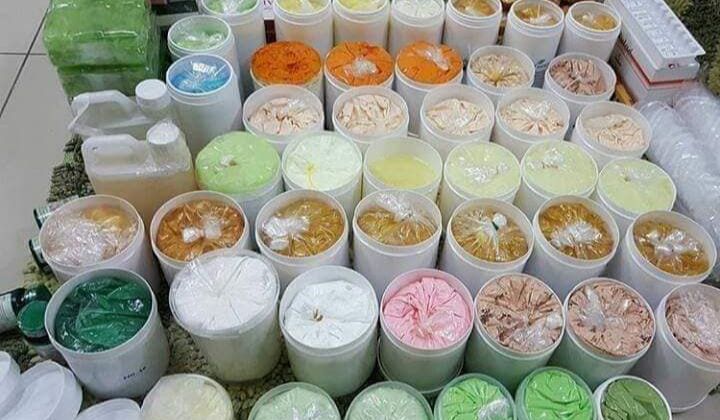
They come in big plastic batches or buckets, which are weighed in kilogrammes. After shipping them in, they are then repacked into smaller packaging to be sold in the local market.
Usually, these products are not MOH-approved and may contain harmful ingredients that could pose health risks for users in the long run.
Tactics often used by Founders of cosmetic products
Sharing this exposé on her Facebook account, Emma claimed that this post was deleted multiple times because of its controversial nature. Finally, after reposting and being banned several times, her post gained some traction and attention. At the time of writing, the post has 12K likes and 17K shares on Facebook.
Here’s her Ex-Founder’s Exposé:
1. The so-called “Founders”
At the invitation of a friend, Emma joined the founder community which is based in the state of Kelantan. She said that she was chosen because of her looks and that she had the potential to succeed. But not originally being from the state, she claimed that her level was a bit lower than those originally from there.
2. The Supplier
According to Emma, OEM factories with GMP status are usually available in Kelantan, Kedah, Perak and Selangor. Thailand also has them and, the products they produce are way more cheaper, which is probably why most founders in that state have easy access to the manufacturer.
For your information, OEMs (Original Equipment Manufacturers) are factories that can produce mass products and let anyone with money sell them with their own branding.
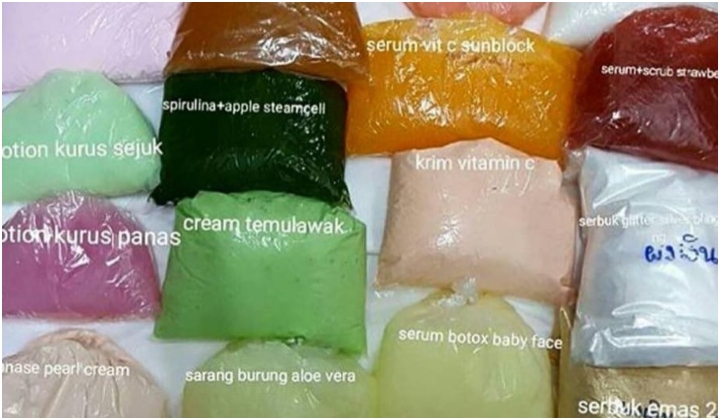
OEMs with GMP (Good Manufacturing Practice) statuses are factories that have to follow a set of rules by the authorities to maintain their high-quality products.
However, Emma said that she used a factory in Jalan Klang Lama as she was living in the Klang Valley. But the founders didn’t let her deal with the factory herself and it has to be through them.
She also added in a recent post that people who use GMP factories don’t get much profit (around 20%). But those with personal and fake OEM factories that use cheap machines, would get a profit of as much as 1000% as they could retail RM60 for a RM1 product.
3. The Discussion
As founders, they can determine the type of product they want to make at the factory, such as its use, shape, and smell with a minimum amount of 500 units. Emma tried doing a face cream priced at RM10.80 each from the factory and she can retail it for RM30. The factory also handled the MOH registration.
For products coming in from Thailand, they cost only RM3.40 per plastic but the MOH registration needed to be handled separately. Emma claimed that those products found with harmful mercury are often those that originated there. Usually, the NOT KKM numbers could be faked, expired, or bought illegally.
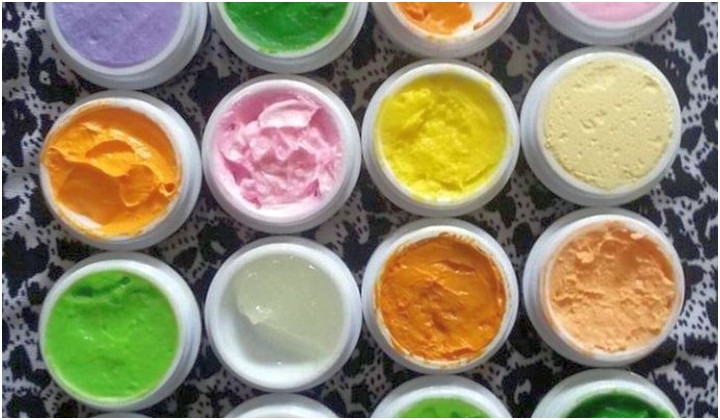
For your information, each cosmetic product should be registered under the Ministry of Health Malaysia (MOH/KKM). They are usually given a notification number called NOT KKM.
However, being registered under MOH doesn’t mean that the product was tested under MOH. It simply means MOH was notified that the product was made in a GMP factory, and hence, can be marketed. For a product to be tested under MOH, there needs to be a side effect issue reported by a user to the brand. Hence, that’s why products with NOT KKM labels on them can even have their goods retracted.
4. The Capital
Emma had to take out a loan of RM40,000 and add some of her savings of RM10,000 to kick-start her business. RM15k was the initial cost of her products while RM30k was the cost needed for marketing.
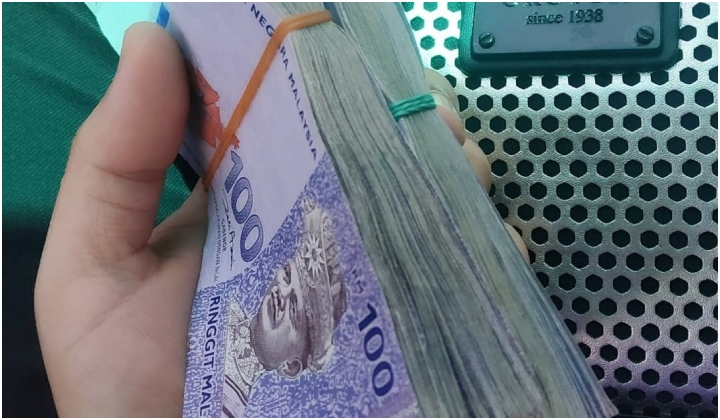
Why was the marketing cost so high? It covered the cost of RENTING the luxurious car and house, and also for social media ads.
5. The Database
The founders have their own shared database of agents under them, which means they already have the target markets for the products. But, to have that database, Emma had to pay around 5K.

Because of that database, it’s not uncommon to see the same stockists selling various products under them. This is probably because new products keep on emerging, as soon as the old products get in trouble. Emma said that stockists usually have one thing in mind, which is to be one of the earliest to sell a product and then move on to another.
6. The Marketing
Those founders with real luxury cars would normally lend their cars to new founders for their marketing. This includes a temporary change of ownership, plate number, and a new spray coat.
But there’s an agreement to it. The car will usually be rented for around 3 months to a year. They won’t ask for a fee but they will ask for a percentage of profit made from the products during the rental period.

Those who succeed in selling their products will buy the car to avoid the humiliation of not actually owning a sports car. Those who fail, need to return the car.
This goes the same with luxurious houses. During the rental period, the new founders would take tons of photos with them, on different days with different clothes. But the photos will be posted on social media in a longer span, to deceive people as if they really own the assets. For Emma, she rented a house in Kelantan for only three days.
7. The Sales
Emma successfully sold 6,000 pcs of her products in a week. But she sold it off to agents. And the agents that she used were those who thrive on fake reviews and marketing.
She got a profit of RM12 for each piece and had a gross profit of RM90,000. The net profit was around RM40,000. But if she were to use a Thailand product, her net profit could grow up to RM100,000 to RM200,000. That’s why most founders would prefer Thailand products as they can get rich with only 2 to 3 cycles.
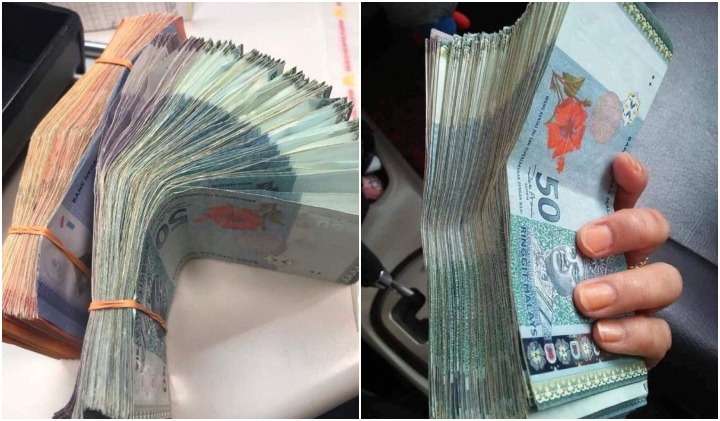
8. The End
Because she started off by being a fraud, Emma felt guilty over her success and decided to stop. A lot of agents were mad at her for not being active on social media. Emma ended up using her profits to pay off her loan and divide it equally among her agents.
She also told that yes, the founders that you see on Instagram and TikTok are legit but probably after 1-3 cycles. Usually, after they succeed in the tactic, some founders will stop and just buy luxury houses or cars and some will open a restaurant, electronic store and more. It’s good that they stopped, but the money initially came from shady sources.
Some of the lies they told
Emma also alleged that she was taught some tricks by the founders.
- The product reviews are fake. Founders would constantly share their agents’ fake reviews with each other and when Emma was a founder, there were around 40-50 agents in Malaysia.
- Many of these “timbang kilo” products are “MOH approved” simply because they send a particular batch for testing but a different one for sale.
- The Fake Product tactic. The founders would usually fake their own products if they received backlash. If the first batch of products has customers complaining of damaged skin, they would release a better batch and claim that the problematic products were fakes released by irresponsible people. Their second batch could also then be from GMP factories, and that would make the customers trust them once again.
In recent posts on her Facebook, Emma revealed that she received threats and warnings of suings for her exposé. She just wanted to share her experience so the public could make wise decisions.
READ MORE: “Nak Putihkan Kulit, Akhirnya Menggelupas” KKM Beri Amaran Jangan Guna Produk Kosmetik Ini
READ MORE: “Ada Racun Berjadual” – KKM Beri Amaran Senarai Produk Kosmetik Miliki Bahan Bahaya
Legal charges for harmful cosmetics
Those who are still selling these banned products can be charged under the Drugs and Cosmetics Control Regulations 1984. First-time offenders are liable to a maximum three-year jail term and an RM25,000 fine. The penalty would be increased to a maximum of five years and RM50,000 fine for repeated offenders.
Companies would be liable to a maximum fine of RM50,000 for the first offence, and up to RM100,000 fine for subsequent offences.
If you wanna know the list of cosmetic brands that are banned by the National Pharmaceutical Regulatory Agency (NPRA) in Malaysia, check it out here. Make sure you or none of your families or friends are using these products.
Remember, there’s no shortcut to being beautiful and slim. It takes time, continuous effort and tons of research.
For those products that guarantee short-term results, sure, you’ll be fairer, slimmer or have flawless skin now, but there are always health consequences in the long term. Your kidneys could suffer, you can get colon cancer, skin cancer, and the list goes on.
Enjoy now and suffer later? Your choice. Let’s not just be pretty, folks, but smart as well.
READ MORE: Kelantan Schoolgirl Gets Rich By Selling Slimming Products – Known For RM1.8K Tumbler
READ MORE: WARNING: Mercury found in 7 cosmetic products by MOH
Share your thoughts with us via TRP’s Facebook, Twitter, and Instagram.

